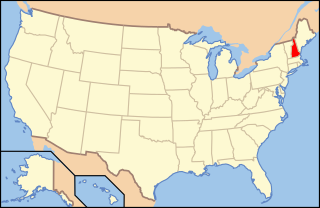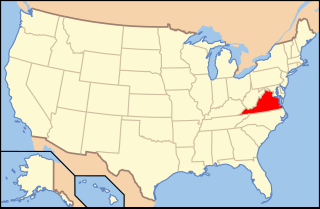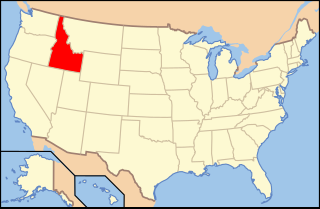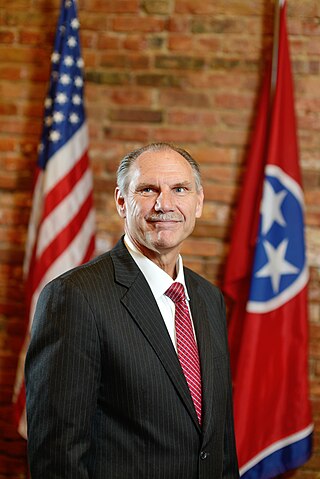Related Research Articles

William Edward Haslam is an American billionaire businessman and politician who served as the 49th governor of Tennessee from 2011 to 2019. A member of the Republican Party, Haslam previously served as the 67th mayor of Knoxville, Tennessee.

The rights of lesbian, gay, bisexual, transgender, and queer (LGBTQ) people in the U.S. state of Utah have significantly evolved in the 21st century. Protective laws have become increasingly enacted since 2014, despite the state's reputation as socially conservative and highly religious. Utah's anti-sodomy law was invalidated in 2003 by Lawrence v. Texas, and fully repealed by the state legislature in 2019. Same-sex marriage has been legal since the state's ban was ruled unconstitutional by federal courts in 2014. In addition, statewide anti-discrimination laws now cover sexual orientation and gender identity in employment and housing, and the use of conversion therapy on minors is prohibited. In spite of this, there are still a few differences between the treatment of LGBTQ people and the rest of the population, and the rights of transgender youth are restricted.

Lesbian, gay, bisexual, transgender, and queer (LGBTQ) people in the U.S. state of New Hampshire enjoy the same rights as non-LGBTQ people, with most advances in LGBT rights occurring in the state within the past two decades. Same-sex sexual activity is legal in New Hampshire, and the state began offering same-sex couples the option of forming a civil union on January 1, 2008. Civil unions offered most of the same protections as marriages with respect to state law, but not the federal benefits of marriage. Same-sex marriage in New Hampshire has been legally allowed since January 1, 2010, and one year later New Hampshire's civil unions expired, with all such unions converted to marriages. New Hampshire law has also protected against discrimination based on sexual orientation since 1998 and gender identity since 2018. Additionally, a conversion therapy ban on minors became effective in the state in January 2019. In effect since January 1, 2024, the archaic common-law "gay panic defence" was formally abolished; by legislation implemented within August 2023.

The Respect for Marriage Act is a landmark United States federal law passed by the 117th United States Congress in 2022 and signed into law by President Joe Biden. It repeals the Defense of Marriage Act (DOMA), requires the U.S. federal government and all U.S. states and territories to recognize the validity of same-sex and interracial civil marriages in the United States, and protects religious liberty. Its first version in 2009 was supported by former Republican U.S. Representative Bob Barr, the original sponsor of DOMA, and former President Bill Clinton, who signed DOMA in 1996. Iterations of the proposal were put forth in the 111th, 112th, 113th, 114th, and 117th Congresses.

Lesbian, gay, bisexual, transgender, and queer (LGBTQ) people in the U.S. state of Virginia enjoy the same rights as non-LGBTQ people. LGBT rights in the state are a relatively recent occurrence; with most improvements in LGBT rights occurring in the 2000s and 2010s. Same-sex marriage has been legal in Virginia since October 6, 2014, when the U.S. Supreme Court refused to consider an appeal in the case of Bostic v. Rainey. Effective July 1, 2020, there is a state-wide law protecting LGBT persons from discrimination in employment, housing, public accommodations, and credit. The state's hate crime laws also now explicitly include both sexual orientation and gender identity.

Lesbian, gay, bisexual, transgender, and queer (LGBTQ) people in the U.S. state of Kentucky still face some legal challenges not experienced by other people. Same-sex sexual activity in Kentucky has been legally permitted since 1992, although the state legislature has not repealed its sodomy statute for same-sex couples. Same-sex marriage is legal in Kentucky under the U.S. Supreme Court ruling in Obergefell v. Hodges. The decision, which struck down Kentucky's statutory and constitutional bans on same-sex marriages and all other same-sex marriage bans elsewhere in the country, was handed down on June 26, 2015.

Lesbian, gay, bisexual transgender, and queer (LGBTQ) people in the U.S. state of Idaho face some legal challenges not experienced by non-LGBTQ people. Same-sex sexual activity is legal in Idaho, and same-sex marriage has been legal in the state since October 2014. State statutes do not address discrimination based on sexual orientation and gender identity; however, the U.S. Supreme Court's ruling in Bostock v. Clayton County established that employment discrimination against LGBTQ people is illegal under federal law. A number of cities and counties provide further protections, namely in housing and public accommodations. A 2019 Public Religion Research Institute opinion poll showed that 71% of Idahoans supported anti-discrimination legislation protecting LGBTQ people, and a 2016 survey by the same pollster found majority support for same-sex marriage.

Mark Allen Pody is an American politician, elected as a Republican member of the Tennessee Senate from the 17th district, encompassing Cannon County, Clay County, Dekalb County, Macon County, Smith County and Wilson County. Pody resides in Lebanon, Tennessee.
Same-sex marriage has been legal in Tennessee since the U.S. Supreme Court's ruling in Obergefell v. Hodges on June 26, 2015. Governor Bill Haslam quickly announced that the state would abide by the court's decision, and same-sex couples began to marry in Tennessee. Previously, Tennessee had banned same-sex marriage both by statute and its State Constitution.
The state of North Dakota has improved in its treatment of lesbian, gay, bisexual and transgender residents in the late 1990s and into the 21st Century, when the LGBT community began to openly establish events, organizations and outlets for fellow LGBT residents and allies, and increase in political and community awareness.
The Equal Access to Intrastate Commerce Act is a 2011 Tennessee act that amends the Tennessee Human Rights Act to define the term "sex" to mean an individual person as male or female as indicated on the individual's birth certificate and prohibits, with exception to employees of a local government, any local government in Tennessee from enacting ordinances, resolutions, or any other means impose on or make applicable to any person an anti-discrimination practice, standard, definition, or provision that is not covered by statewide anti-discrimination laws.

Mississippi House Bill 1523, also called the Religious Liberty Accommodations Act or Protecting Freedom of Conscience from Government Discrimination Act, is 2016 state legislation passed in direct response to federal rulings in support of same-sex marriage. MS H.B. 1523 provides protections for persons, religious organizations, and private associations who choose to provide or withhold services discriminatorily in accordance to the three "deeply held religious beliefs or moral convictions" which are specifically outlined in the bill. These protected beliefs are 1) that marriage is and should be an exclusively heterosexual union, 2) sex should not occur outside of marriage, and 3) that biologically-assigned sex is objective and immutably linked to gender.
Senate Bill 175 is a 2016 Kansas legislative proposal that would prohibit public universities to "deny a religious student association any benefit available to any other student association" based on those organizations' "sincerely held religious beliefs" This bill is intended to protect student organizations who restrict membership in regards to LGBT students, which critics argue is discriminatory.
Senate Bill 297 is a 2015 Utah anti-LGBT act that allows for an exemption for individuals, religious officials, religious organizations, and government officers and employees who object to participating to issuing marriage licenses for marriages they object to based on "deeply held beliefs about marriage, family, and sexuality."

Anti-LGBTQ curriculum laws are laws approved by various U.S. states that limit the discussion of sexuality and gender identity in public schools. In theory, these laws mainly apply to sex ed courses, but they can also be applied to other parts of the school curriculum as well as to extracurricular activities such as sports and organizations such as gay–straight alliances. In July 2022, a wave of anti-LGBT curriculum resurgence saw ten such laws beginning to take effect in six different states. Some states enacting these new laws appear to have mirrored similar laws from other states.
This is a list of notable events in the history of LGBT rights that took place in the year 2017.
Child Placing Agency Inclusion Act is a 2017 anti-LGBT law that was enacted in the U.S. state of Alabama that permits taxpayer-funded adoption agencies to deny services on the basis of religious exemptions.
Senate Bill 1556, officially called An act to amend Tennessee Code Annotated, Title 4; Title 49 and Title 63, relative to conscientious objections to the provision of counseling and therapy, is a 2016 anti-LGBT law in the state of Tennessee that allows licensed counselors in private practice to terminate care or refer away clients because of moral objections to how the client identifies.
Jerry Sexton is a retired American politician who served as a Republican member of the Tennessee House of Representatives. Sexton represented Tennessee House District 35, an area in East Tennessee consisting of Grainger, Claiborne, and part of Union counties from 2015 until his retirement following redistricting in 2023. Sexton would be succeeded by several representatives, including Rick Eldridge, Gary Hicks, and Dennis Powers, for Grainger, Claiborne, and Union counties respectively following the dissolution of District 35.

Tennessee House Bill 878 is a proposed state law in the U.S. state of Tennessee, granting an individual the right to refuse to solemnize a marriage if the individual has a religious or conscience-based objection to that partnership. The law was passed in 2024 and signed into law by Governor Bill Lee.
References
- ↑ Bill Text: TN HB1111 | 2017-2018 | 110th General Assembly | Draft
- ↑ HB 1111 by *Farmer
- 1 2 3 4 Gervin, Cari Wade (May 5, 2017). "Haslam signs 'natural and ordinary' bill". The Nashville Post. Retrieved May 6, 2017.
- ↑ "Anti-LGBTQ Bills in Tennessee Attempt to Undermine Supreme Court's Marriage Equality Ruling". Human Rights Campaign. April 26, 2017. Retrieved May 6, 2017.
- ↑ O'Hara, Mary Emily (April 27, 2017). "Tennessee Bill to Protect 'Natural and Ordinary' Meaning of Words Is Veiled Anti-LGBTQ Law, Opponents Say". NBC News. Retrieved May 6, 2017.